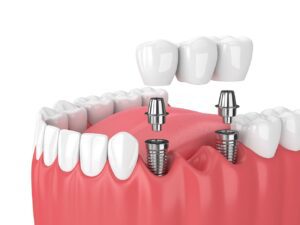Introduction:
While advancements in dental implant technology and techniques have made the implant process relatively comfortable for most patients, it's essential to acknowledge that some procedures may carry a higher risk of discomfort. In this guide, we'll explore dental implant procedures that may pose a greater potential for pain and discomfort, helping you make informed decisions about your treatment options and preparation for your implant journey.
1. Bone Grafting Procedures:
Bone grafting may be necessary in cases where patients have insufficient jawbone density to support dental implants. While bone grafting is a routine procedure, it involves harvesting bone tissue from another part of the body or using synthetic materials to augment the jawbone. This additional surgical step may result in post-operative discomfort, swelling, and extended healing times compared to straightforward implant placement procedures.
2. Sinus Lift Surgery:
Sinus lift surgery is a specialized bone grafting procedure performed in the upper jaw to increase bone volume and create a stable foundation for dental implants. During this procedure, the sinus membrane is lifted to make room for bone graft material, which is then used to augment the sinus floor. Sinus lift surgery is considered more invasive than standard implant placement procedures and may result in increased discomfort and longer recovery times.
3. Multiple or Complex Implant Placements:
Patients requiring multiple dental implants or those with complex dental conditions may experience more discomfort during and after implant placement procedures. The extent of the surgery, the number of implants placed, and the need for additional procedures, such as tooth extractions or ridge augmentation, can contribute to increased post-operative pain and swelling. Additionally, patients with underlying dental or medical conditions may be more susceptible to discomfort during the recovery period.
4. Inadequate Pain Management:
While modern dental practices prioritize patient comfort and pain management, inadequate pain management techniques can contribute to increased discomfort during dental implant procedures. Factors such as improper anesthesia administration, insufficient post-operative pain medication, or inadequate patient education on pain management strategies can all contribute to heightened pain levels and dissatisfaction with the implant experience.
Conclusion:
While dental implant procedures are generally well-tolerated by most patients, certain factors can increase the risk of discomfort and pain. By understanding the potential risks associated with specific procedures, patients can work closely with their dental providers to develop comprehensive pain management plans and address any concerns or apprehensions they may have. If you're considering dental implants and want to learn more about potential pain risks and mitigation strategies, schedule a consultation with your dental provider to discuss your options and ensure a comfortable implant journey.





Comments